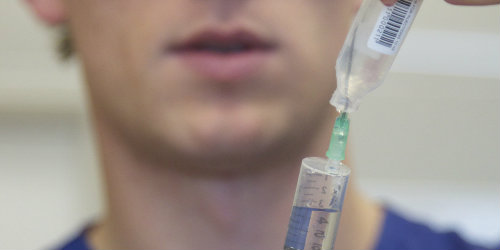Transforming cardiac surgery with pioneering techniques
‘Beating-heart’ surgery is used in over 20% of cardiac operations worldwide, improving survival and recovery rates for patients and reducing surgery costs by up to 25%.
Cardiovascular disease is the UK’s biggest killer. Until 1995, ‘on-pump’ surgery was the gold standard for most cardiac operations.
This is where the heart is paralysed and the blood diverted from the vascular system outside the body to an artificial pump will temporarily keep your heart and lungs going during the operation to keep your vital organs and tissues alive.
Today the risks are greater than they were 20 years ago because of the ever-increasing number of high-risk patients requiring an operation.
Not only is cardiovascular disease the UK’s biggest killer but we are living longer so patients tend to be older and have more serious coronary heart disease requiring urgent or emergency procedures. So you will probably be in a high-risk group with substantially increased rates of post-operative complications. This means you are likely to spend more time in intensive care and recovering in hospital. And grimly, your chances of survival will be lower.
In 1995, a new technique known as ‘beating-heart’ surgery began to improve this rather bleak picture for heart patients.
Pioneered at the Bristol Heart Institute, the technique removed the need for the heart-lung machine and for the heart to be paralysed during the bypass surgery.
Not only does this improve survival rates, but it also reduces the amount of post-operative complications as well as the time that patients spend in intensive care and recovery.
“My neighbours were actually quite shocked that about the sixth day after the operation I was here walking around the village taking a little bit of exercise.” - Christopher Whitfield, BHI patient.
The new technique relies on using a special stabiliser developed at the BHI, which keeps a small part of the heart still. This allows the surgeon to operate on the stationary part while the rest of the heart continues to beat. This became known as ‘off-pump’ beating heart coronary surgery (OPCAB), since there was no need for an artificial pump.
An initial series of more than ten clinical trials, which included a very large study of 400 patients led by Professors Angelini and Ascione at the Bristol Heart Institute, confirmed several short-term benefits to patients if the heart continued to beat during the procedure.
These included fewer post-surgery infections due to inadequate clearance of fluid from the lungs and temporary kidney failure. There was also less blood loss and subsequent need for transfusion, as well as reduced damage to the heart muscle itself.
Independent studies went on to confirm that off-pump surgery significantly reduces the risk of major post-operative complications, time spent in intensive care and length of hospital stay and costs.
A large US study collated all the hospital costs from the date of surgery to the date of discharge and calculated an average cost saving per patient of $5,500 (25 per cent) for OPCAB. Across the 26,000 operations carried out in the UK by 2011 using OPCAB, this equated to a total saving of US$137 million.
And increasing mainstream adoption of the technique looks set to go from strength to strength since the National Institute for Health and Care Excellence (NICE) backed the safety and efficacy of OPCAB surgery in 2011.
The pioneering procedure is now routinely used worldwide in 20 to 25 per cent of operations as more and more surgeons are trained in the technique and prefer to use it.
Currently at the BHI, 75 per cent of all the heart bypass operations are carried out on the beating heart with a total of more than 8,500 cases completed since 1995. In addition, this technique has been taught to more than 15 surgical trainees who now perform this type of surgery in the UK and worldwide.
The BHI has also monitored the long-term outcomes of OPCAB demonstrating that this novel technique is as good as conventional surgery in achieving major long-term benefits to heart patients.
Related researchers
Related research groups
 Support groundbreaking research
Support groundbreaking research
Your donations turn our passion for research into life-changing results.
